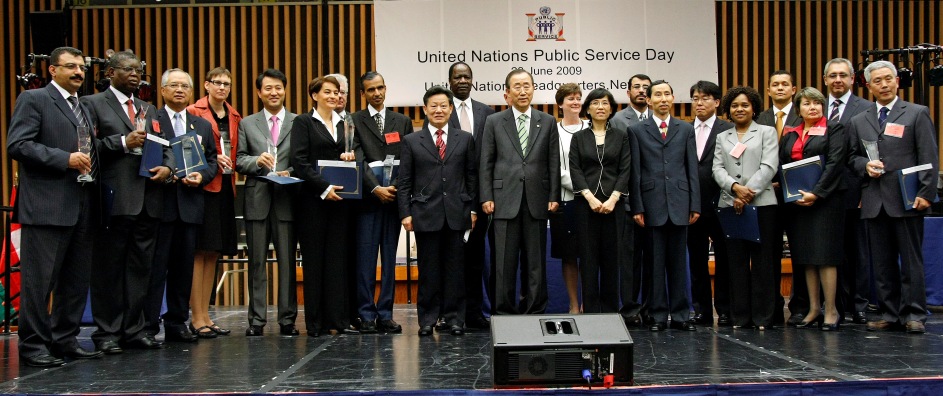In a world saturated with rapid changes and overwhelming societal pressures, the concept of honest public service emerges as a beacon for integrity and accountability. Is it possible to navigate the intricate web of everyday public duties while remaining unwaveringly honest? This question not only underscores an inherent challenge but catalyzes a deeper exploration into the Bahá’í teachings, which extol the values and virtues of such selfless service.
Public service is fundamentally viewed as a vocation wherein one dedicates themselves to the betterment of society, often requiring a disinterested commitment to the common good. Within Bahá’í teachings, this commitment is particularly exalted, with emphasis placed on the paramount virtue of honesty. Analyzing this ethical framework uncovers profound insights regarding the responsibilities of individuals in their public capacities.
At the heart of Bahá’í teachings lies the principle that all humanity is interconnected, fostering an intrinsic duty to serve others. The idea that one’s actions affect the larger community serves as a compelling motivator for engaging in honorable service. By advancing the notion that honest public service is a moral imperativ,e Bahá’ís acknowledge that each individual’s contributions can elevate collective well-being. This virtue serves as a cornerstone from which a wider understanding of social responsibility can blossom.
Honesty, esteemed as a cardinal virtue, is not merely the absence of deceit but rather encompasses a far-reaching commitment to openness, transparency, and integrity. In the realm of public service, this adherence to honesty requires vigilance against the temptations of corruption, favoritism, and other forms of unethical behavior that can undermine public trust. Bahá’í teachings stress the significance of truthfulness, one of the fundamental attributes of God, urging followers to embody this virtue in all facets of life, including their careers as public servants.
The challenge faced by Bahá’ís and, indeed, all individuals who aspire to serve the public, is striking a balance between personal ambitions and the unwavering commitment to integrity. The tumultuous landscape of politics and governance often presents scenarios in which the ethical lines are blurred, creating an environment that can foster dishonesty. How can one maintain their ethical compass within a system riddled with moral ambiguities?
The First Principle of the Bahá’í Faith emphasizes the importance of unity and the elimination of prejudice, urging individuals to rise above self-interest for the sake of others. By deeply internalizing these concepts, public servants can cultivate a conscientious approach that prioritizes the service of humanity over personal accolades or material gain. This perspective enhances the quality of leadership, whereby decisions are made with transparency and an unwavering commitment to societal well-being.
Moreover, Bahá’í teachings advocate for the cultivation of virtues such as trustworthiness, humility, and fairness as integral components of honest public service. For instance, a public servant imbued with humility recognizes that their authority is a privilege, not a right; thus, they are more likely to engage with the community respectfully and transparently. This engagement not only fosters trust but also inspires collective action towards communal goals.
The ethical framework of Bahá’í teachings promotes the notion that honest public service has tangible far-reaching effects. By exemplifying integrity, public servants can encourage others to adopt similar approaches, thereby instigating a cultural shift towards higher ethical standards within society. This ripple effect can lead to transformative changes, fostering an environment where honesty reigns and the public’s trust is restored.
Furthermore, as public servants embrace these principles, they become catalysts for societal progress. The Bahá’í sense of justice, nestled within honest public service, necessitates that individuals advocate for the marginalized and amplify the voices of the underrepresented. This responsibility reinforces the idea that service is not a solitary endeavor but rather a collective journey towards equity and justice.
Nevertheless, the pathway of honest public service is fraught with challenges. It demands resilience in the face of adversity and courage to uphold one’s values amidst the antics of political maneuvering. Bahá’í teachings equip followers with spiritual sustenance, urging them to draw strength from the belief in a higher purpose that transcends worldly tribulations. This empowerment galvanizes individuals to persist, reinforcing their convictions even when faced with the temptation to compromise their integrity.
Honest public service, in alignment with Bahá’í principles, also involves continuous self-reflection and personal development. Individuals are encouraged to introspectively assess their motivations and behaviors, ensuring they align with the virtuous standards set forth by their faith. This journey of self-improvement is essential not only for personal growth but also for the elevation of the quality of service rendered to the community.
Ultimately, the commitment to honesty in public service is an aspiration that transcends individual ambition, igniting a profound journey of collective responsibility. By embracing the Bahá’í teachings on honest public service, one engages in a lifelong quest not only to serve their community with integrity but also to inspire others to follow suit. As we ponder the initial question posed, it becomes evident that honest public service may pose challenges, yet it is these very challenges that sculpt the essence of what it means to serve authentically in a complex world.
In summation, the exaltation of honest public service within the Bahá’í framework serves as a guiding principle, advocating for transparent governance and ethical accountability. As we grapple with societal complexities, Bahá’ís are called upon to exemplify these virtues, not only reinforcing their faith but also nurturing the fabric of society through their unwavering commitment to serving the common good. This holistic approach to public service embodies a transformative vision for individuals, communities, and nations alike.
